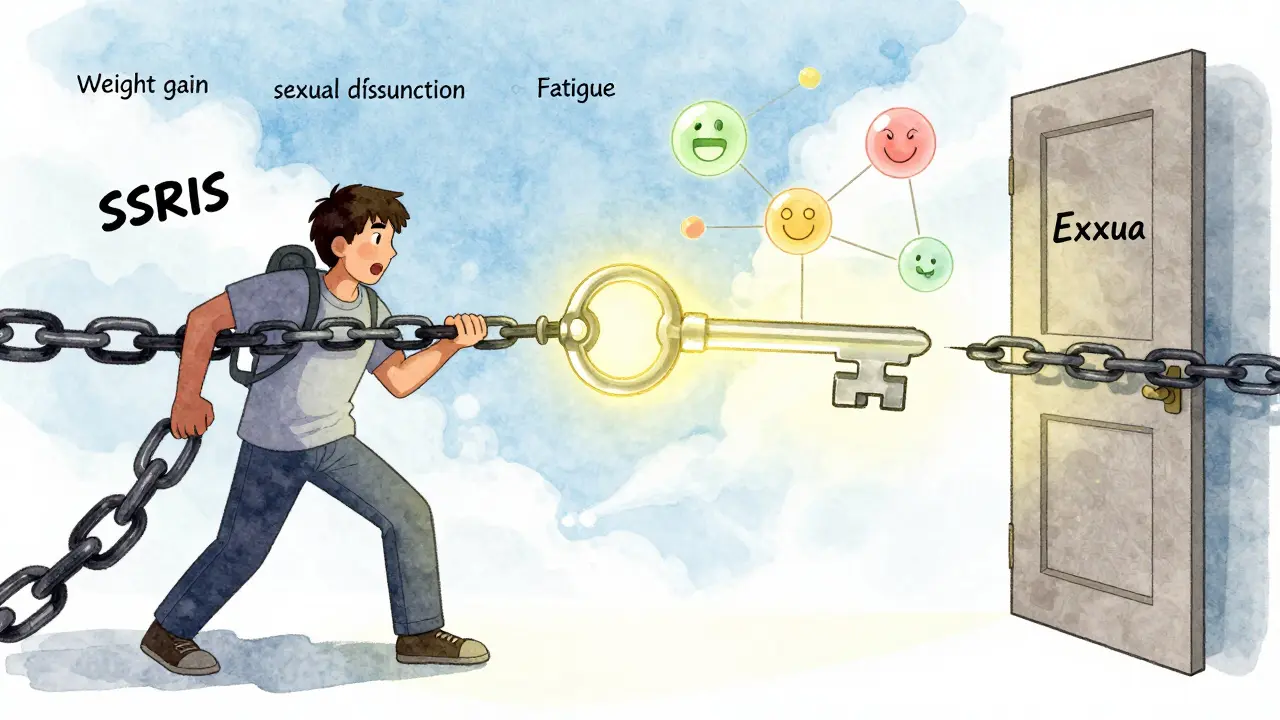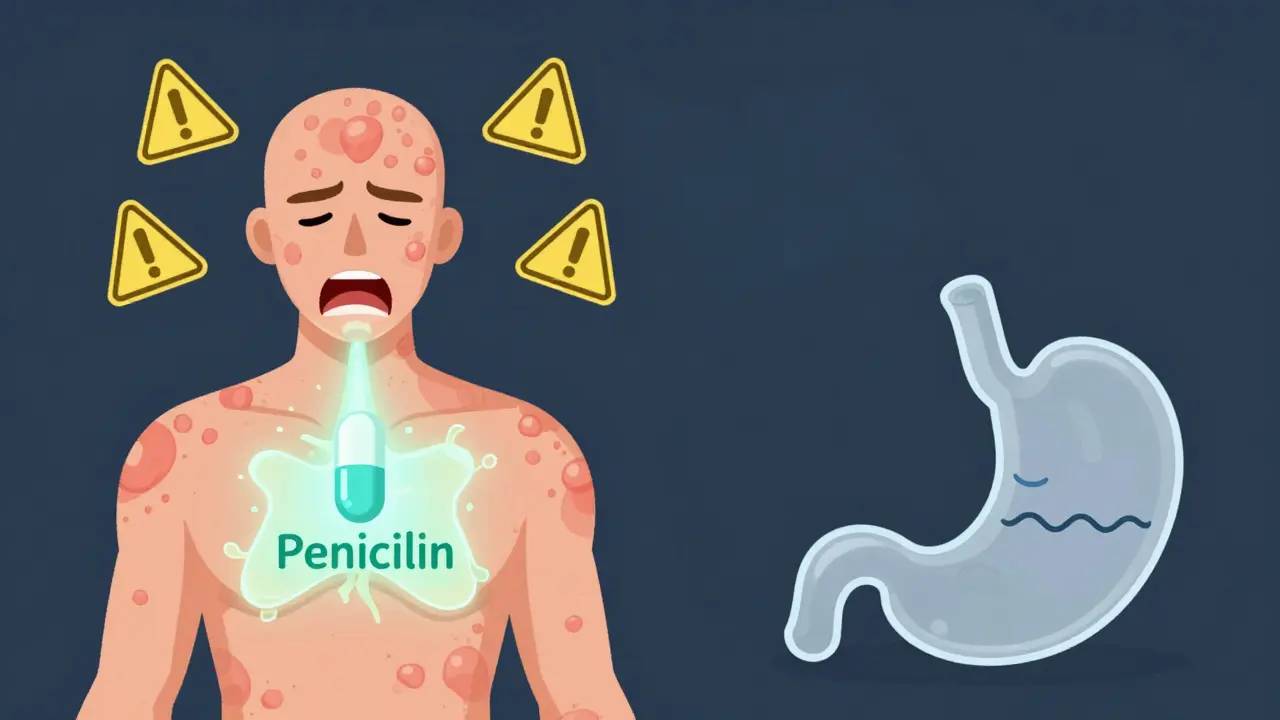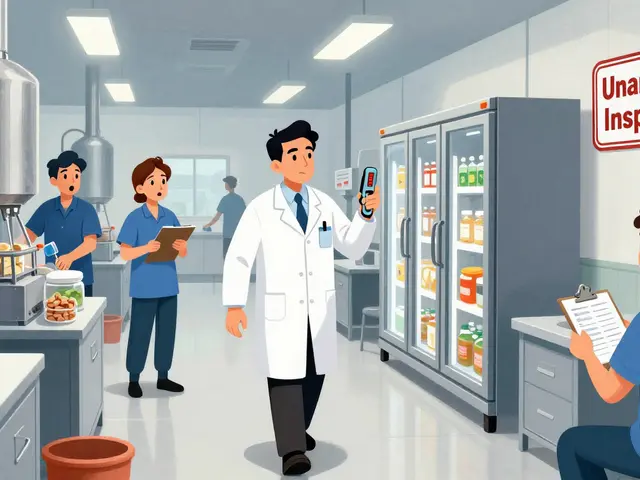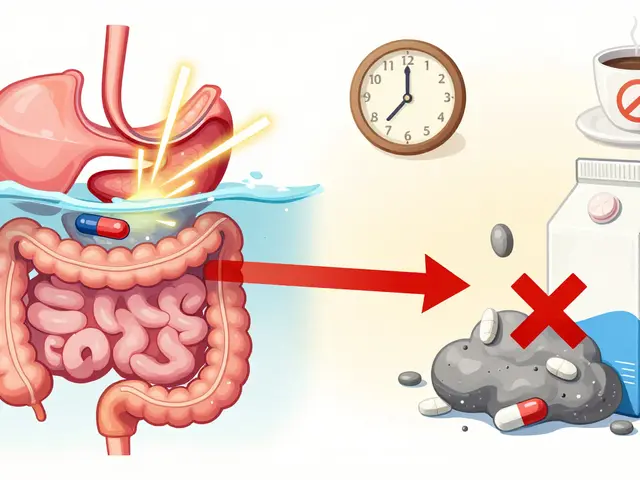Side effects: what to expect and how to stay safe
Side effects can be confusing and scary. On KiwiDrug we explain them in plain language so you know what to watch for, how common they are, and when to call your doctor.
Medications affect people differently. Some side effects are mild and short-lived, like nausea after an antibiotic. Others can be serious, like liver injury from Depakote or allergic reactions from antibiotics such as erythromycin. Our articles break risks down by frequency and severity and give real-world tips to reduce harm.
How we explain side effects
We start with the basics: what the drug is used for and the most likely side effects. For example, our Depakote guide lists common issues such as weight gain and tremors, while the erythromycin piece explains stomach upset and cardiac concerns. We include drug interactions and special precautions, like the interactions covered for alpelisib and ibrutinib. Every piece also tells you which symptoms require urgent care.
Practical safety tips
Keep a medication list and update it before every doctor visit. Track new symptoms for the first few weeks after starting a drug — many side effects show up early. Don’t stop a prescribed medicine suddenly unless you have severe reactions; instead call your prescriber to get safe guidance. Ask your pharmacist about interactions whenever a new drug or supplement is added. If you buy medicines online, use verified pharmacies and check reviews; our guides on safe online buying explain what to watch for.
Understand who is at higher risk. Older adults, people with liver or kidney problems, and those taking multiple drugs are more likely to have bad reactions. Pregnancy and breastfeeding change risk profiles too. Our articles often call out these groups and offer practical advice specific to them.
What to ask your doctor — Ask how likely side effects are, how long they usually last, and whether they can be managed at home. Request written steps for serious symptoms and ask about alternative medicines if side effects affect your quality of life. If you have other conditions or take supplements, ask whether dose adjustment or monitoring is needed.
When to get help right away — Seek emergency care for trouble breathing, swelling of face or throat, sudden severe rash, high fever, fainting, or chest pain. For less dramatic but worrying signs like jaundice, severe mood changes, or unexplained bleeding, contact your doctor the same day.
Use our tag collection to find focused articles. Looking up a specific drug — from ibrutinib to gabapentin alternatives — helps you see real side effect profiles and smart next steps. We focus on clarity, practical steps, and sources so you can make safer choices.
Keep a simple side-effect diary: note date, dose, symptom, severity (mild/moderate/severe), and whether it went away. Take photos of rashes and keep packaging and labels. Share this diary with your clinician and pharmacist — it speeds diagnosis. You can also report serious reactions to your country's drug safety agency to help others and families.

New Antidepressants with Better Side Effect Profiles: What’s Emerging in 2026
New antidepressants like Exxua, Zuranolone, and Auvelity offer faster relief and fewer side effects than older SSRIs. Discover how these 2026 breakthroughs are changing depression treatment-and who benefits most.
read more
Drug Allergies vs. Side Effects: How to Tell Them Apart and Stay Safe
Learn how to tell the difference between a drug allergy and a side effect - why confusing them can lead to dangerous treatment choices, unnecessary costs, and missed healing opportunities.
read more
Ginette-35: Uses, Dosage, Side Effects & Buying Guide
Learn what Ginette-35 treats, proper dosing, potential side effects, and how to order it safely online. Clear, practical advice for everyday users.
read more
Understanding the Potential Side Effects of Misoprostol: What You Should Know
Misoprostol is a medication often prescribed for various reasons, including inducing labor and treating stomach ulcers. It's essential to understand its potential side effects to better manage them if they occur. This article explores common and less common side effects and provides tips on handling them effectively. Read on to make informed decisions about your health.
read more
Methocarbamol and Drug Testing: What You Need to Know
As a blogger, I recently researched Methocarbamol and drug testing, and I want to share some important information with you all. Methocarbamol is a muscle relaxant commonly prescribed to alleviate pain and discomfort caused by muscle spasms. While it's not considered a controlled substance, it's essential to be aware of its potential impact on drug tests. Typically, Methocarbamol doesn't show up on standard drug tests as it's not considered a drug of abuse. However, if you're taking Methocarbamol and have an upcoming drug test, it's always best to inform the testing facility to avoid any confusion or false-positive results.
read more




